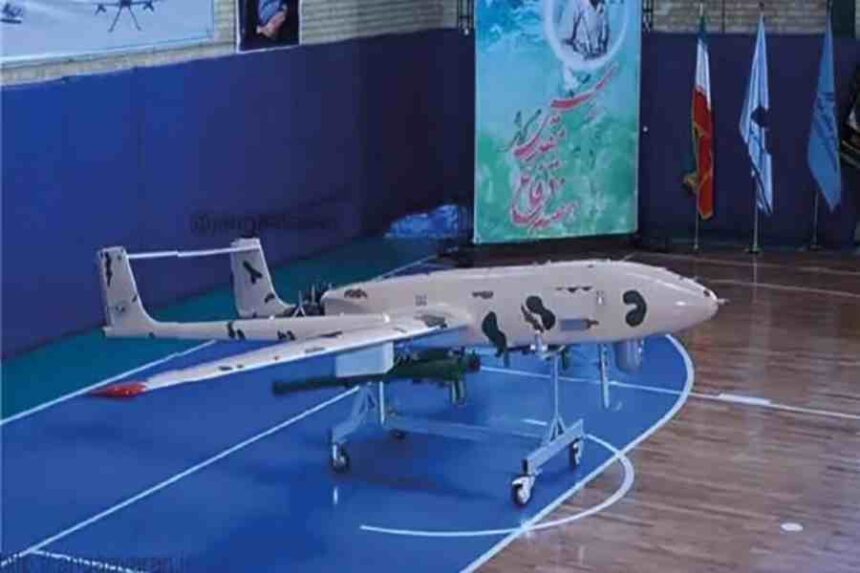Since the Islamic Revolution of 1979, Iran has aggressively pursued its agenda of exporting its revolutionary ideology worldwide, establishing itself as a central player in global terrorism. Designated by the U.S. as a sponsor of terror in 1984, Iran has consistently provided support, including financial aid, training, and weaponry, to numerous terrorist organizations across the globe.
Among these, Hezbollah stands as one of the most prominent, receiving extensive backing from Tehran. The U.S. State Department has labeled Iran as the “foremost state sponsor of terrorism,” pointing to its extensive network of proxy militias and terror groups, including Hezbollah, Hamas, and various others, as evidence of its destabilizing influence.
Hezbollah, Iran’s foremost proxy in Lebanon, holds significant sway over the Lebanese government and is deeply entrenched in the country’s political landscape. Founded during Lebanon’s civil war in the early 1980s, Hezbollah has carried out numerous terrorist attacks, including the devastating bombing of the U.S. Embassy in Beirut in 1984.
Driven by an ideology rooted in antisemitism, Hezbollah’s ultimate goal is the destruction of Israel and the establishment of an Islamic state. Despite its origins in Lebanon, Hezbollah has extended its reach globally, establishing terror cells in Europe, Latin America, and Africa.
Similarly, Hamas, a Sunni Islamist terrorist organization operating in the Gaza Strip, has long been a recipient of Iranian support. Founded in 1988 during the First Intifada, Hamas is dedicated to the destruction of Israel and the establishment of an Islamic state in its place.
Despite occasional rifts in their relationship, Iran has consistently provided financial aid and weaponry to Hamas, enabling the group to launch multiple wars against Israel and carry out countless attacks targeting Israeli civilians.
In addition to Hezbollah and Hamas, Iran has cultivated ties with a myriad of other terrorist organizations, including Palestinian Islamic Jihad (PIJ) and Kataib Hezbollah in Iraq. PIJ, a close ally of Hamas, shares Iran’s vision of the destruction of Israel and has received extensive support from Tehran, including funding, training, and weaponry.
Similarly, Kataib Hezbollah, a radical Shiite militia operating in Iraq, has been trained and armed by the Islamic Revolutionary Guard Corps (IRGC) and has carried out numerous attacks against U.S. forces and coalition allies in the region.
Beyond the Middle East, Iran has also established a significant presence in Yemen, where it supports the Houthi rebels in their fight against the Saudi-led coalition. The Houthis, who chant slogans denouncing America and Israel, have received extensive support from Iran, including training and arms shipments. In recent years, the conflict in Yemen has escalated, with the Houthis carrying out attacks on ships in the Red Sea and launching drones and missiles targeting Israel.
Furthermore, Iran has cultivated ties with militant groups in Afghanistan and Pakistan, including the Zaynabiyoun Brigade and the Fatemiyoun Division. These groups, composed primarily of Afghan and Pakistani Shiites, have been deployed to fight in Syria and have been accused of human rights abuses and terrorist activities.
In Bahrain, Iran supports militant groups such as Saraya al Ashtar and Saraya al-Mukhtar, which have carried out numerous attacks targeting Bahraini security forces and U.S. personnel in the region. Similarly, in Saudi Arabia, Iran has supported groups like Hezbollah al Hejaz, which has advocated violence against the Saudi regime and carried out terrorist attacks in the past.
Overall, Iran’s extensive support for terrorist organizations across the globe poses a significant threat to regional and global security. By providing funding, training, and weaponry to these groups, Iran continues to fuel instability and conflict, undermining efforts for peace and stability in the region. As the international community grapples with the challenge of containing Iran’s influence, the need for concerted action to counter its support for terrorism has never been more urgent.




